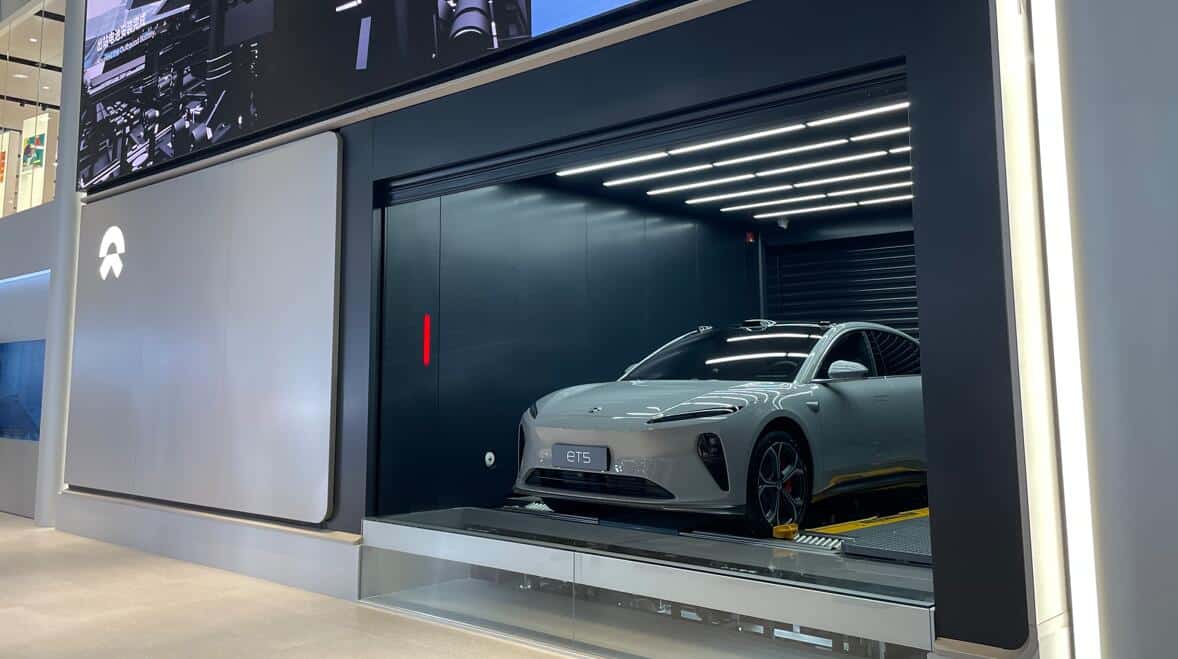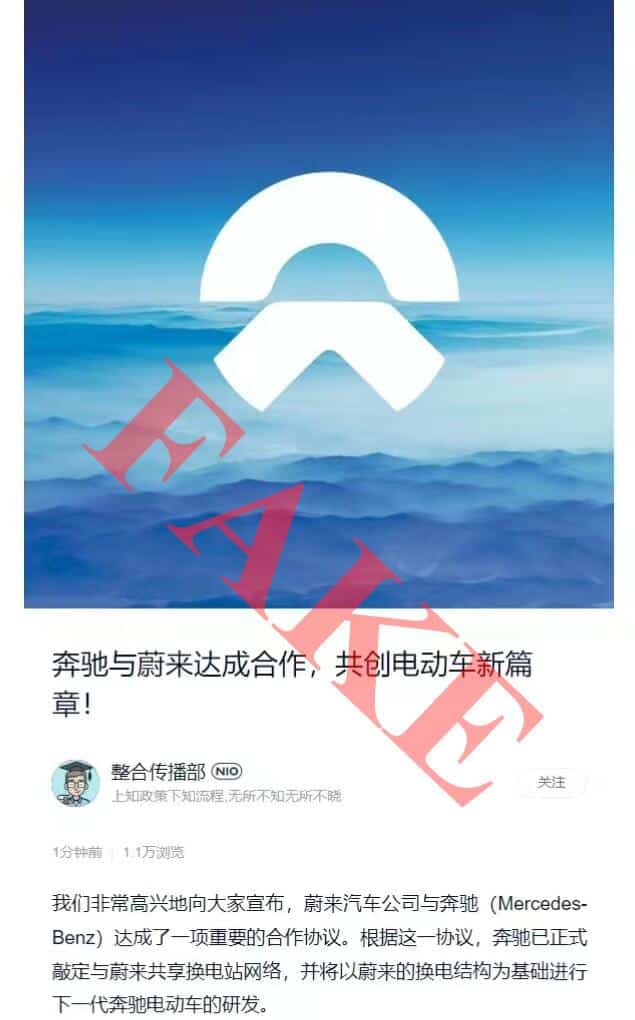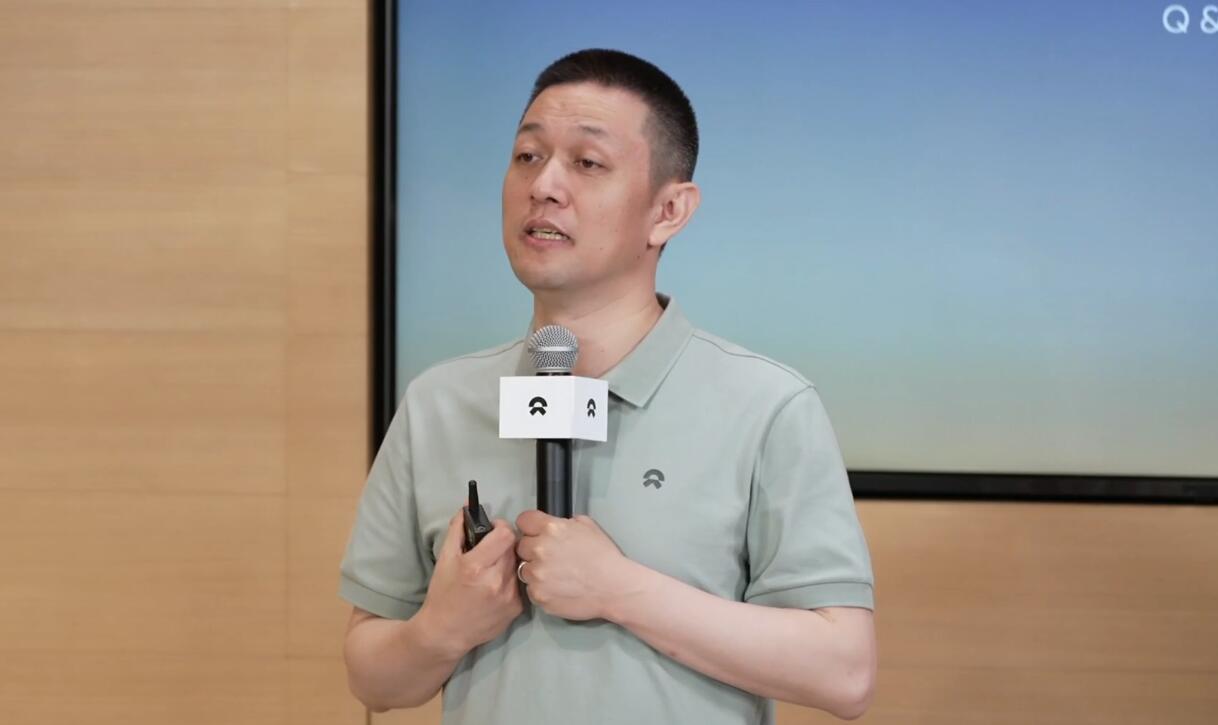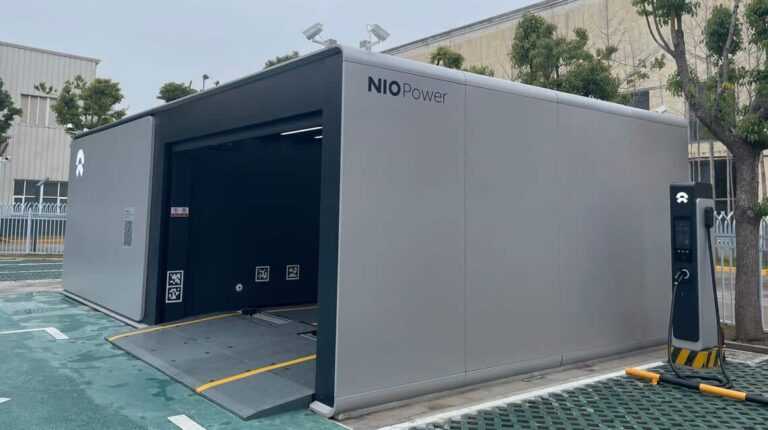A fake rumor yesterday claimed that Mercedes-Benz will use Nio's battery swap network and will build its next-generation models based on Nio's standards.
(Image credit: CnEVPost)
Rumors about a partnership between Nio (NYSE: NIO) and German luxury car maker Mercedes-Benz were widely circulated on Chinese social media networks yesterday. But this was later denied.
One of the most widely circulated was an image with text claiming that Mercedes-Benz would use Nio's battery swap network and would build next-generation battery swap-enabled models based on Nio's standards.
In the comments section of a Weibo user's post sharing the image, Nio's legal department left a message later yesterday saying the image was a forgery.
Ma Lin, Nio's senior director of corporate communications, later retweeted the message. As of press time, the Weibo post has been deleted.
CnEVPost saw the image yesterday in several WeChat groups, as well as a chat transcript claiming that Nio had entered into a partnership with Mercedes-Benz.
The image mimics the style of the Nio App page and the company's statement, but the publisher of the false statement does not exist among Nio App users.
These false rumors appear at an interesting point in time, making it particularly noticeable.
On June 12, Nio announced an immediate RMB 30,000 ($4,200) reduction in the starting prices of all new models, but the previously free monthly battery swap service became a paid option.
On the same evening, Nio held a communication meeting with its customers and broadcasted the meeting live on its social media platforms.
William Li, Nio's founder, chairman and CEO, said in response to a question during the communication that several companies are now talking to Nio about using its battery swap network, according to the live stream watched by CnEVPost.
However, they will need to develop vehicles to Nio's battery swap standard, which takes time, Li said.
It's worth noting that these statements are not materially different from previous comments made by Nio management, which Li also said at the communication that they were diplomatic.
Li last mentioned similar remarks two months ago, when he said in an April 1 media group interview during the China EV 100 Forum that Nio wants other companies to share and build battery swap infrastructure with it.
"I met with several company executives today and they asked me how we could work together, and we're open to that," he said on April 1.
Nio refers to its battery swap model as battery as a service (BaaS), an innovation that can be understood through the lens of cloud services, Li said at the time.
The cloud services around the world, whether they are offered by Microsoft, Google and Amazon in the US or Alibaba, Tencent and Huawei in China, they all have one thing in common -- the companies themselves are the primary users, he said.
Despite frequent rumors over the past two years, as of yet no other car company has said it will use Nio's battery swap network.
In addition to the Nio brand, another brand that will use these battery swap stations will be the company's sub-brand, codenamed ALPS, which is expected to start delivering vehicles next year.
Nio's current plants can support the production of vehicles under both Nio and ALPS brands, and no major Capex investment is required, Li said in a June 9 analyst call following the announcement of first-quarter earnings.
Current battery swap stations are sufficient for both brands to share, he said.
($1 = RMB 7.1639)




